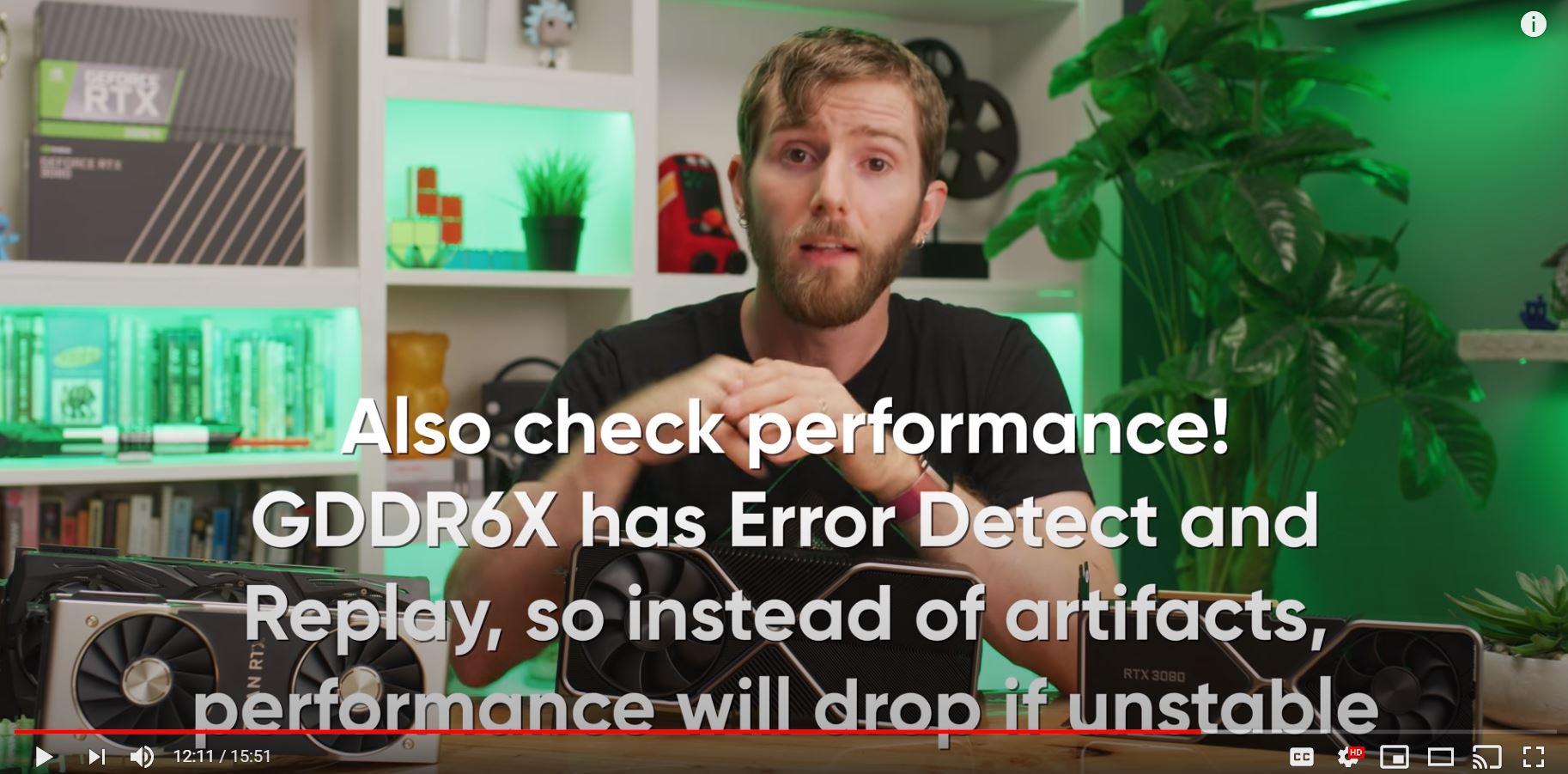forii wrote: ↑05 Nov 2020, 17:36
What, wtf, i stress test my CPU OC with realbench over 4 hours and same in prime, so why it should not be stable in games?
You have to test other weak links that your stress test did not cover.
Define "stability". Did you mean you tested crash stability, or did you mean you tested performance stability (with CPU100%+GPU100%+SSD100%
loaded simultaneously to find the sweet spot performance spot before the performance dropoff near the overclock crash point)?
There is another big thread where there is a 1% chance that an temporary underclock solves. Just do a quick 5 minute test. Test all stones. If it solves things, then the overclock is readjusted to fix the newly found weak link in the chain. For example, there are weird error correction issues (e.g. overclocked PCI buses, overclocked GDDR6X).

Modern computers are full of error correction systems which creates latency if excessively overclocked. There's a curve of dropped performance before the sudden performance-drop cliff. Computers no longer crash immediately at some overclocked settings because error correction "rescues" the overclocked but the repeat-based / retransmit-based error correction adds latency.
It's reality of modern 2020s computer living, unlike year 1990s computers that just crashed when overclocked too much.
Even things like electromagnetic interference (EMI) is a much bigger problem (even if a ~1% problem) than it used to be in 1990s because it pushes the error correction needle. Modern cables, buses, memories, etc, are often resembling micropacket systems that does transmit. Imagine your RAM losing a % of memory reads, (like 10% packet loss on an Internet connection, except it's between GPU and memory, or between CPU and SSD, or whatever) -- lagdeath/stutterdeaths by millions nanoseconds.
Yesterday 1985 IDE bus .... CRASH upon EMP/electromagnetics/overclock/etc
Today's 2020 nVME .... LAG upon error correction
Yesterday's 1985 ISA bus ... CRASH upon EMP/electromagnetics/overclock/etc
Today's 2020 PCI-Express ... LAG upon error correction
Yesterday's 1985 RS232 serial bus ... CORRUPTION
Today's 2020 USB ... LAG upon error correction
Overclocking is fun but a modern late 2010s-era and 2020s-era computer is currently fraught with large amounts of error correction latency/stutter risks, you have to be careful of the downhill performance (caused by error correction increases) right before the crashcliff of the overclock needle pushing.
So sometimes you need an overclock margin to find the sweet spot hump just before the performance dropoff near the crashpoint of the overclock.
Again, I am not saying that this is your problem; but your "wtf" suggests you may be unaware of this new era of 2020s error-correction-latency reality in the now bigger-nether-region (100% stable but slow performance) between the overclock sweet spot and the higher-overclock crash spot. The odds may only be 1% or 5% chance that this is your problem, but it must be tested for, as
"stable max-Hz overclock" no longer necessarily means "max-performance overclock" due to error correction latencies.
What this means is that once you test multiple overclocks (at maxload GPU+CPU+SSD simultaneously loaded; sometimes problems ONLY happens ONLY when all 3 are max-loaded concurrently; like in a real game), you have to test for the performance hump region that now occurs slightly further back from max-possible stable overclock. Since testing to max stable overclocks no longer guarantees max performance anymore today due to the error correction surge at max Hz;
There are some computers that perform faster at 5.1GHz than at 5.2GHz
because of error correction latency (even when things are not thermal throttled). This was not a problem in 1990. But this is a problem in 2020.
Anyway, there are MANY potential possible troubleshooting steps you may need to make in 2020 that you never needed to do in year 2000 or 2010.
The modern 2020s stutter-debug checklist now also includes an intentional 5-minute temporary underclock test --
to at least rule out a certain possible causes. Welcome to the club, buddy...
